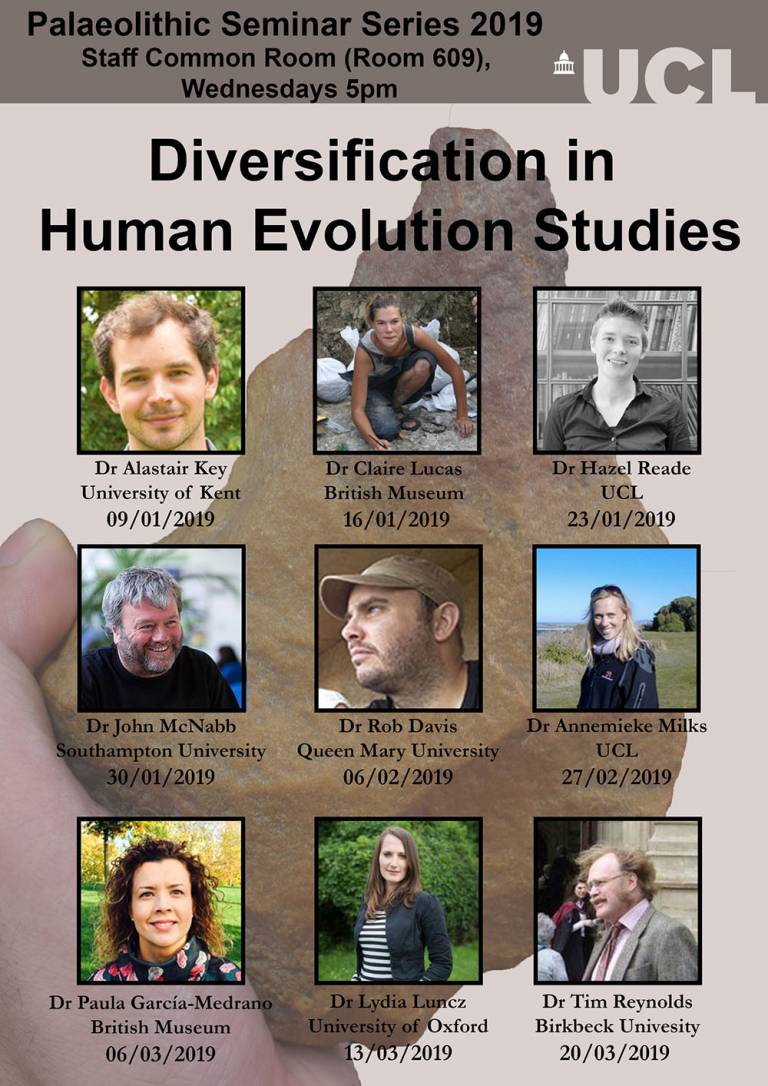Primate Archaeology: how stone tools help us understand behaviour
13 March 2019, 5:00 pm–6:00 pm

Lydia Luncz (University of Oxford) will give the next seminar in the new series on Diversification in Human Evolution Studies at the UCL Institute of Archaeology on 13 March.
This event is free.
Event Information
Open to
- All
Cost
- Free
Organiser
-
Tomos Proffitt
Location
-
60931-34 Gordon SquareLondonWC1H 0PYUnited Kingdom
Abstract
The intellectual curiosity in our origins and evolution has always played a central role in the history of humankind. The cultural evolution in early humans has been successfully reconstructed through the analysis of stone tools and bones preserved in the archaeological record. Comparatively little is known about the evolutionary developments of stone tools use in other primates. Primate Archaeology is a new field merging the classic disciplines of Primatology and Archaeology to investigate the history and developments of stone tool use in non-human primates. This new approach opens avenues to research the development, current stage, ecological circumstances and social mechanisms underlying stone tool use in primates. I will summarize our recent discoveries in primates through applications of archaeological methods using examples of all living stone tool using primates, ranging from Western chimpanzees (Pan troglodytes verus) in Ivory Coast, the Burmese long tailed macaque (Macaca fascilularis aurea) in Southern Thailand, to the bearded capuchin monkeys (Sapajus libidinosus) in Brazil. I will highlight the advances we made in understanding social learning mechanisms and cultural tendencies in wild primates through investigations of their tool selection pattern as well as permanent changes of the environment through persistent stone tool use linking tool use in non-human primates to early hominins to better understand the circumstances in which lithic material culture can evolve.
Any enquiries about the event may be directed to Tomos Proffitt.
Further details
About the Speaker
Lydia Luncz
Postdoctoral Researcher at University of Oxford
More about Lydia Luncz Close
Close

